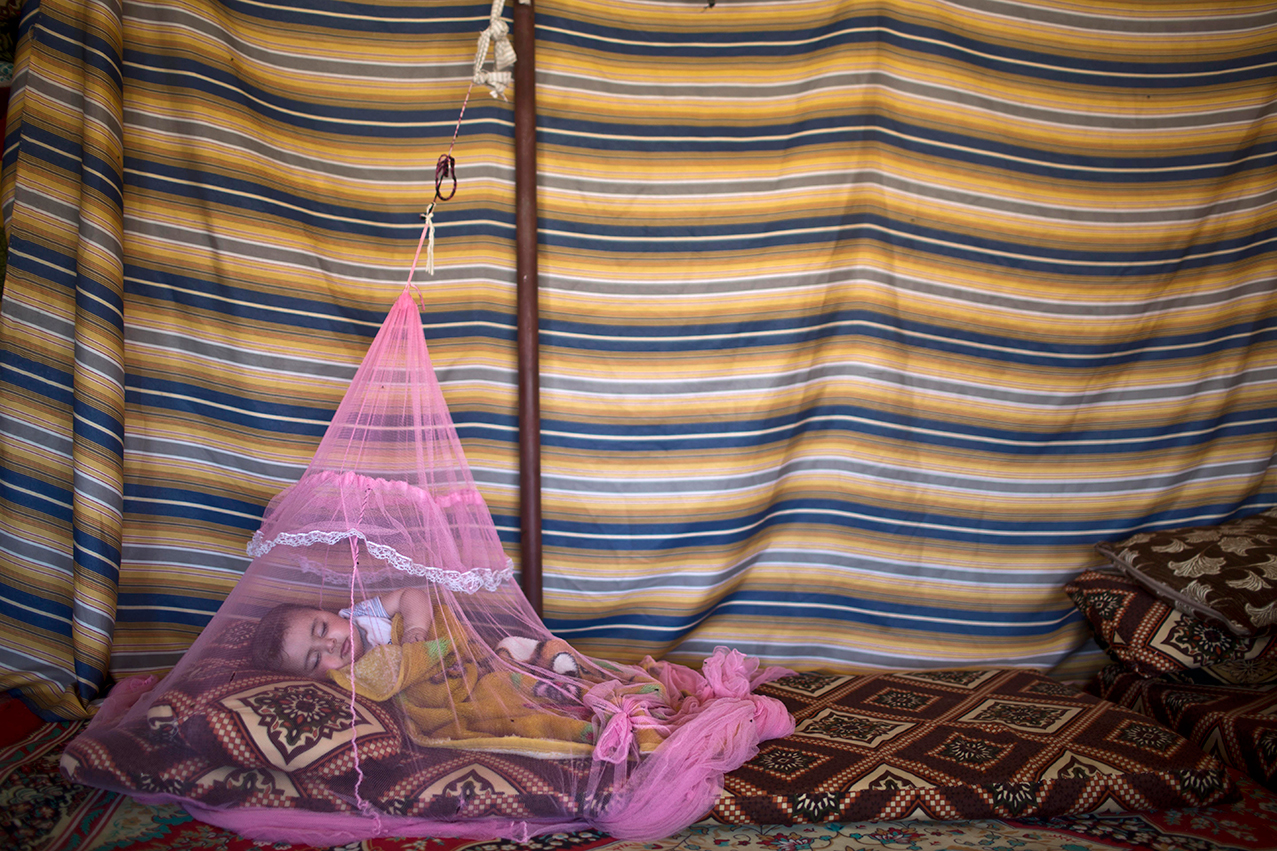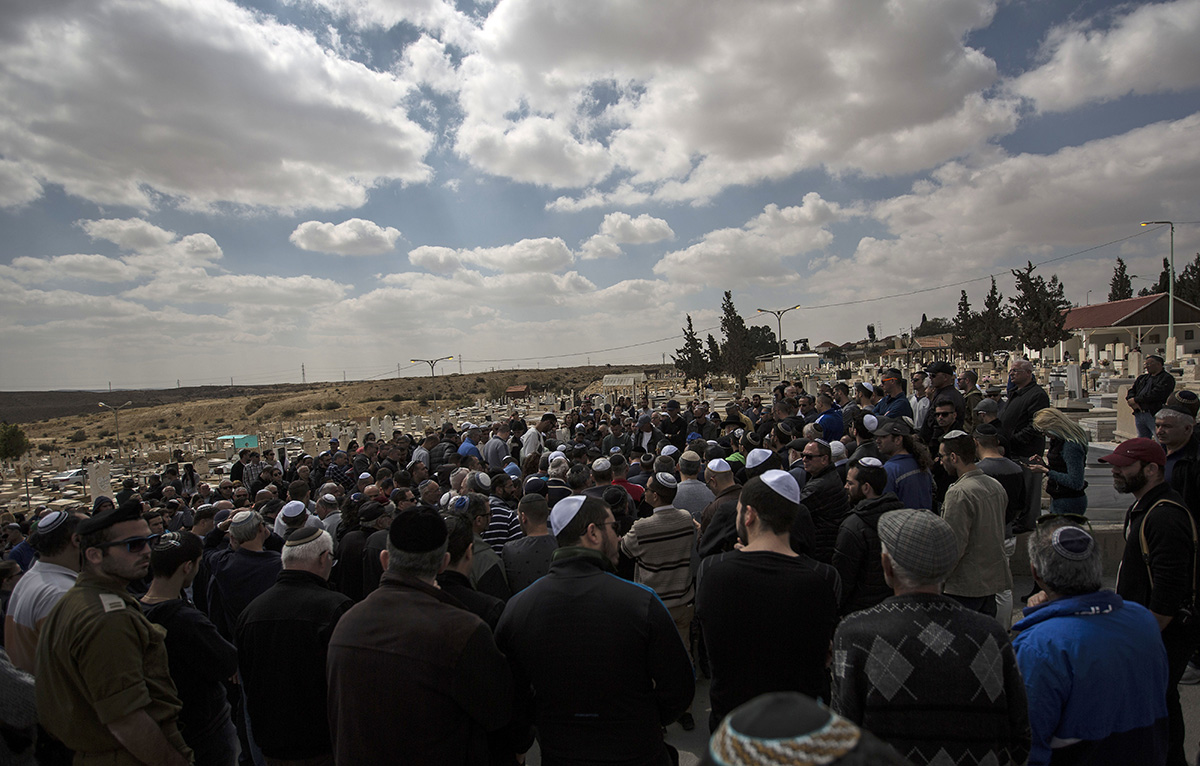
Mohammad Jamal last saw his now-4-month-old daughter when she was 2 days old. He doesn't know when he will see her next.
For most of his adult life, the 33-year-old has worked menial and risky jobs far from his home and family. He is among millions of impoverished Bangladeshis forced to eke out livelihoods as migrant workers.
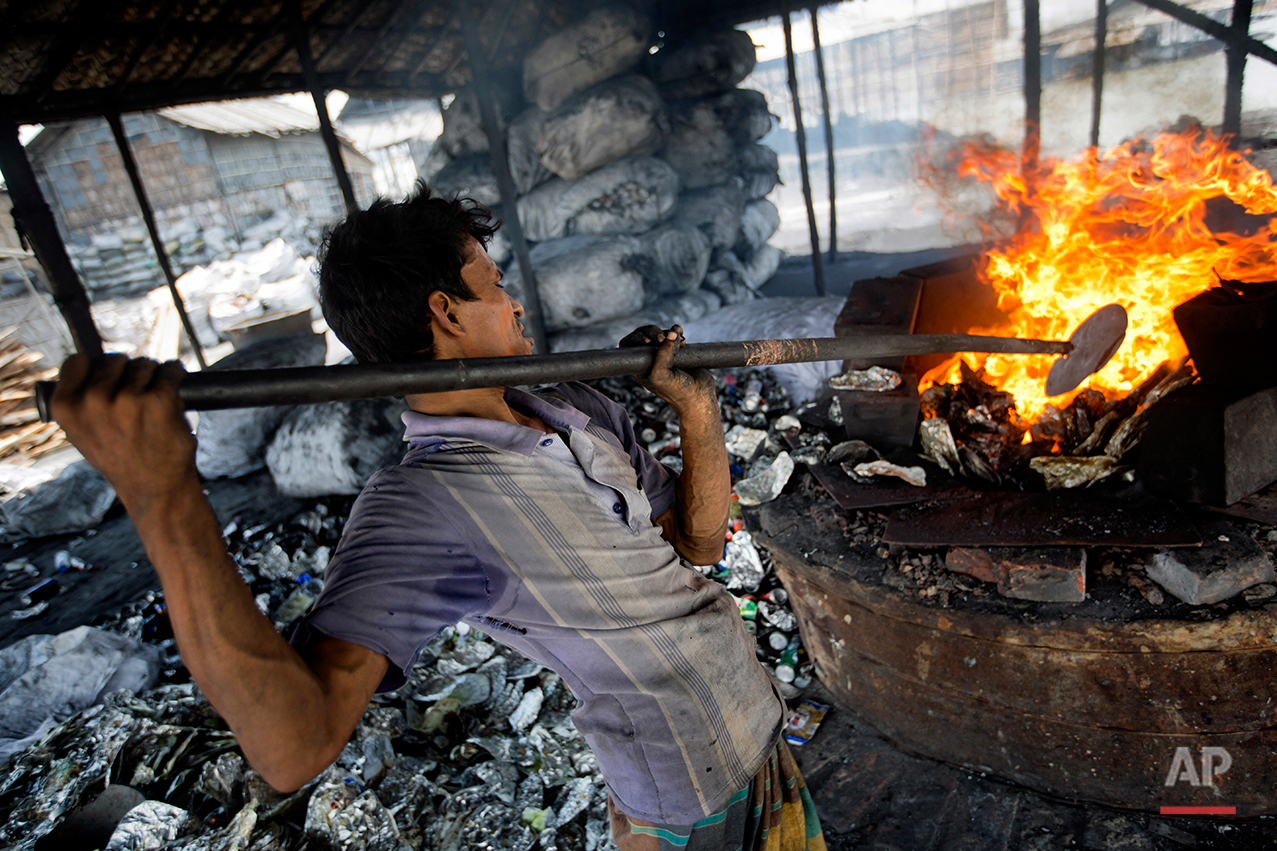
In this Aug. 3, 2016 photo, Mohammad Jamal melts used aluminum waste at a recycling factory on the outskirts of Dhaka, Bangladesh. A large swath of land not far from the Buriganga River is dotted with makeshift tents that are home to men and women who travel far from home to work 12 hours a day recycling cans, industrial ash and medicine blister packets into raw aluminum. The work is difficult and dangerous. The workers have no safety equipment or masks to protect themselves from the fumes and aluminum dust. (AP Photo/A.M. Ahad)
"I have no land to cultivate and I'm the only working hand in my family. It's hard to stay far from home, but I'm working hard for a better future for my child," he says, showing pictures of the cherubic little girl on his cellphone.
Jamal works at a small aluminum recycling factory in Keraniganj, on the outskirts of the capital, Dhaka. A large swath of land not far from the Buriganga River is dotted with makeshift tents that are home to men and women who work 12 hours a day recycling cans, industrial ash and medicine blister packets into raw aluminum. Those aluminum blocks are then sold to companies that make machine parts.
The work is difficult and dangerous. The workers have no safety equipment or masks to protect themselves from the fumes and aluminum dust.
The toil earns the men and women an average of $10 a day. Why do so many people leave their hometowns for such a small sum? Because more than 40 million of Bangladesh's 166 million people survive on less than $2 a day.

In this Aug. 6, 2016 photo, workers melt aluminum waste in an aluminum recycling factory in the outskirts of Dhaka, Bangladesh. A large swath of land not far from the Buriganga River is dotted with makeshift tents that are home to men and women who travel far from home to work 12 hours a day recycling cans, industrial ash and medicine blister packets into raw aluminum. The work is difficult and dangerous. The workers have no safety equipment or masks to protect themselves from the fumes and aluminum dust. (AP Photo/ A.M. Ahad)

In this Aug. 3, 2016 photo, Mohammad Mosharrof sorts aluminum pieces from industrial waste, in the outskirts of Dhaka, Bangladesh. A large swath of land not far from the Buriganga River is dotted with makeshift tents that are home to men and women who travel far from home to work 12 hours a day recycling cans, industrial ash and medicine blister packets into raw aluminum. The work is difficult and dangerous. The workers have no safety equipment or masks to protect themselves from the fumes and aluminum dust. (AP Photo/ A.M. Ahad)
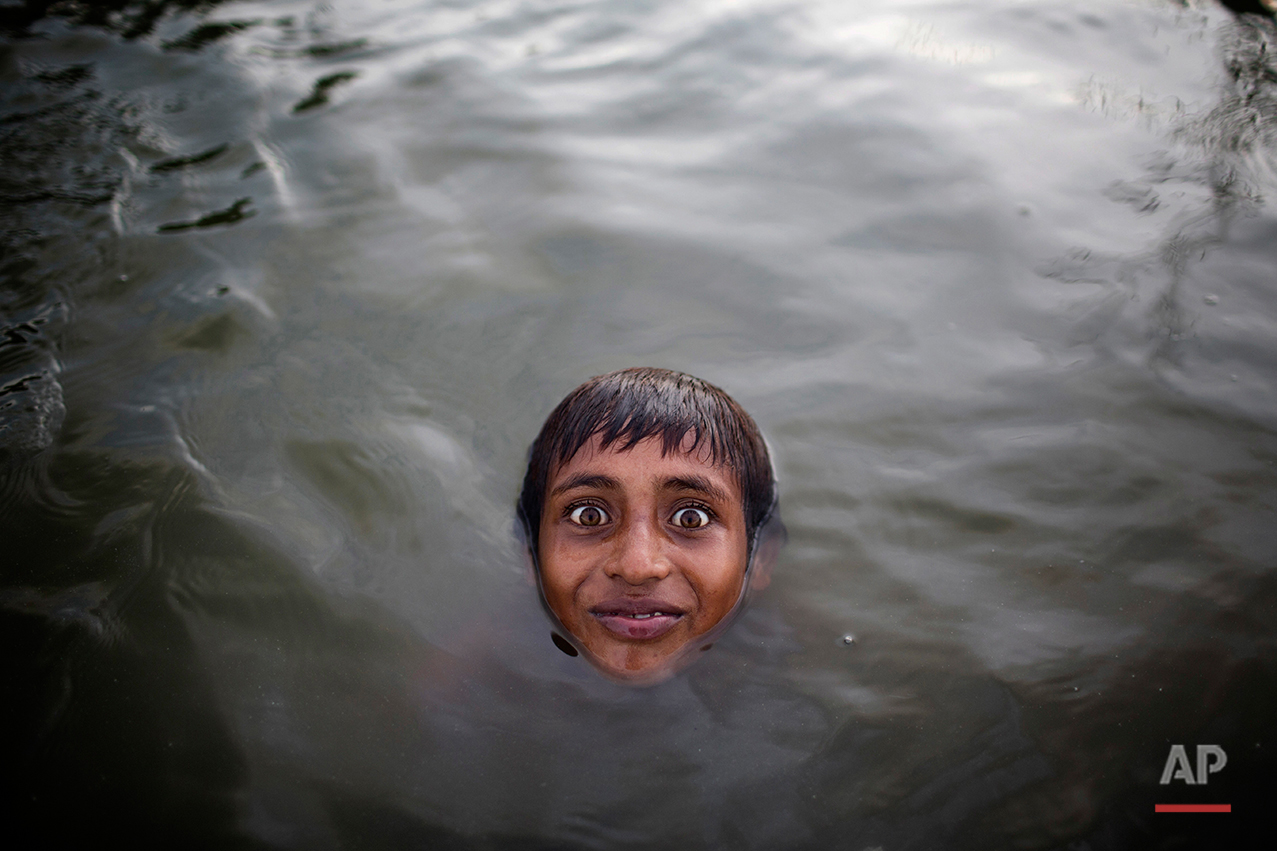
In this Aug. 6, 2016 photo, Rakib Ahamed, a Bangladeshi migrant child worker, reacts as he is photographed while taking a bath during a break near an aluminum recycling factory on the outskirts of Dhaka, Bangladesh. A large swath of land not far from the Buriganga River is dotted with makeshift tents that are home to men and women who travel far from home to work 12 hours a day recycling cans, industrial ash and medicine blister packets into raw aluminum. The work is difficult and dangerous. The workers have no safety equipment or masks to protect themselves from the fumes and aluminum dust. (AP Photo/A.M. Ahad)

In this Aug. 3, 2016 photo, Mohammad Jamal poses for a portrait at an aluminum recycling factory on the outskirts of Dhaka, Bangladesh. A large swath of land not far from the Buriganga River is dotted with makeshift tents that are home to men and women who travel far from home to work 12 hours a day recycling cans, industrial ash and medicine blister packets into raw aluminum. The work is difficult and dangerous. The workers have no safety equipment or masks to protect themselves from the fumes and aluminum dust. (AP Photo/A.M. Ahad)
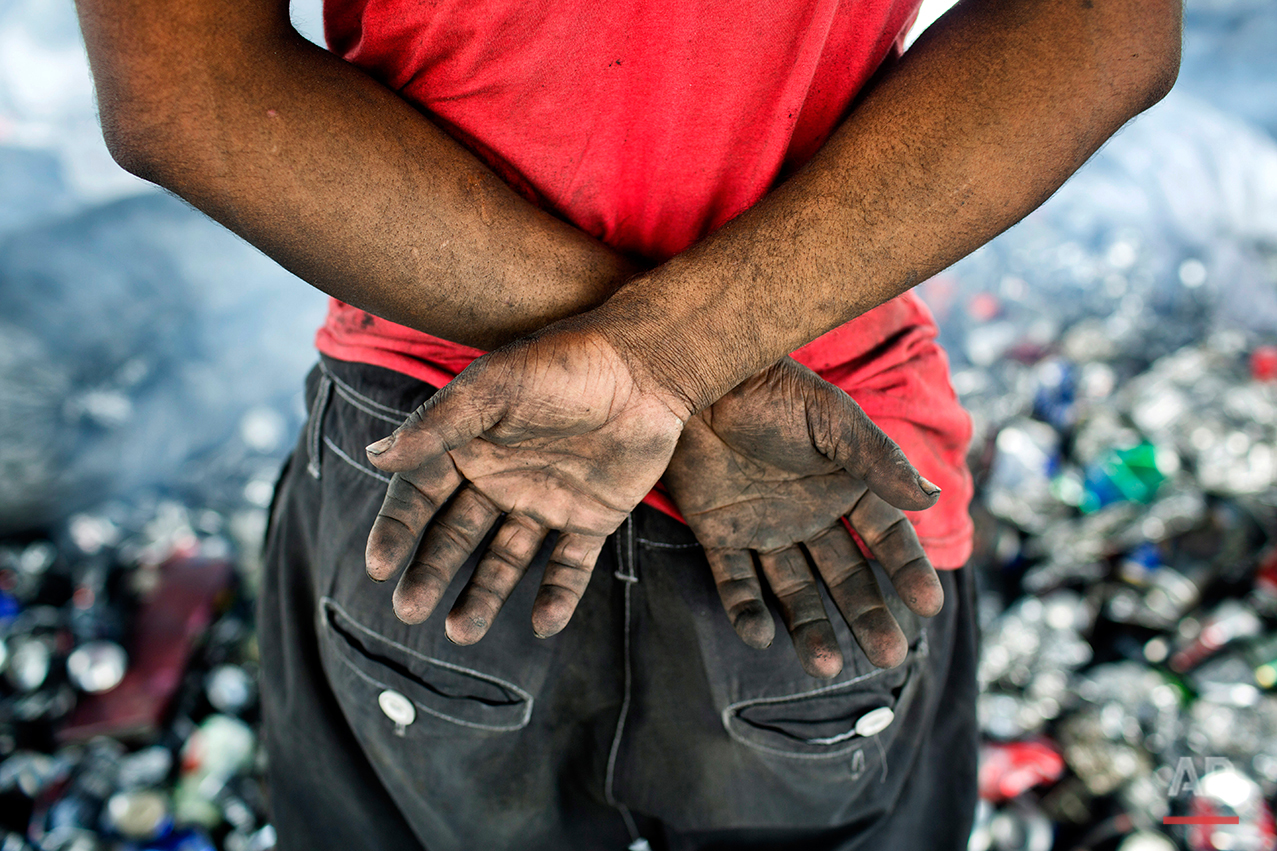
In this Aug. 3, 2016 photo, Ruhul Amin, pauses as he sorts aluminum cans on the outskirts of Dhaka, Bangladesh. A large swath of land not far from the Buriganga River is dotted with makeshift tents that are home to men and women who travel far from home to work 12 hours a day recycling cans, industrial ash and medicine blister packets into raw aluminum. The work is difficult and dangerous. The workers have no safety equipment or masks to protect themselves from the fumes and aluminum dust. (AP Photo/ A.M. Ahad)

In this Aug. 6, 2016 photo, a worker melts aluminum waste in an aluminum recycling factory on the outskirts of Dhaka, Bangladesh. A large swath of land not far from the Buriganga River is dotted with makeshift tents that are home to men and women who travel far from home to work 12 hours a day recycling cans, industrial ash and medicine blister packets into raw aluminum. The work is difficult and dangerous. The workers have no safety equipment or masks to protect themselves from the fumes and aluminum dust. (AP Photo/ A.M. Ahad)
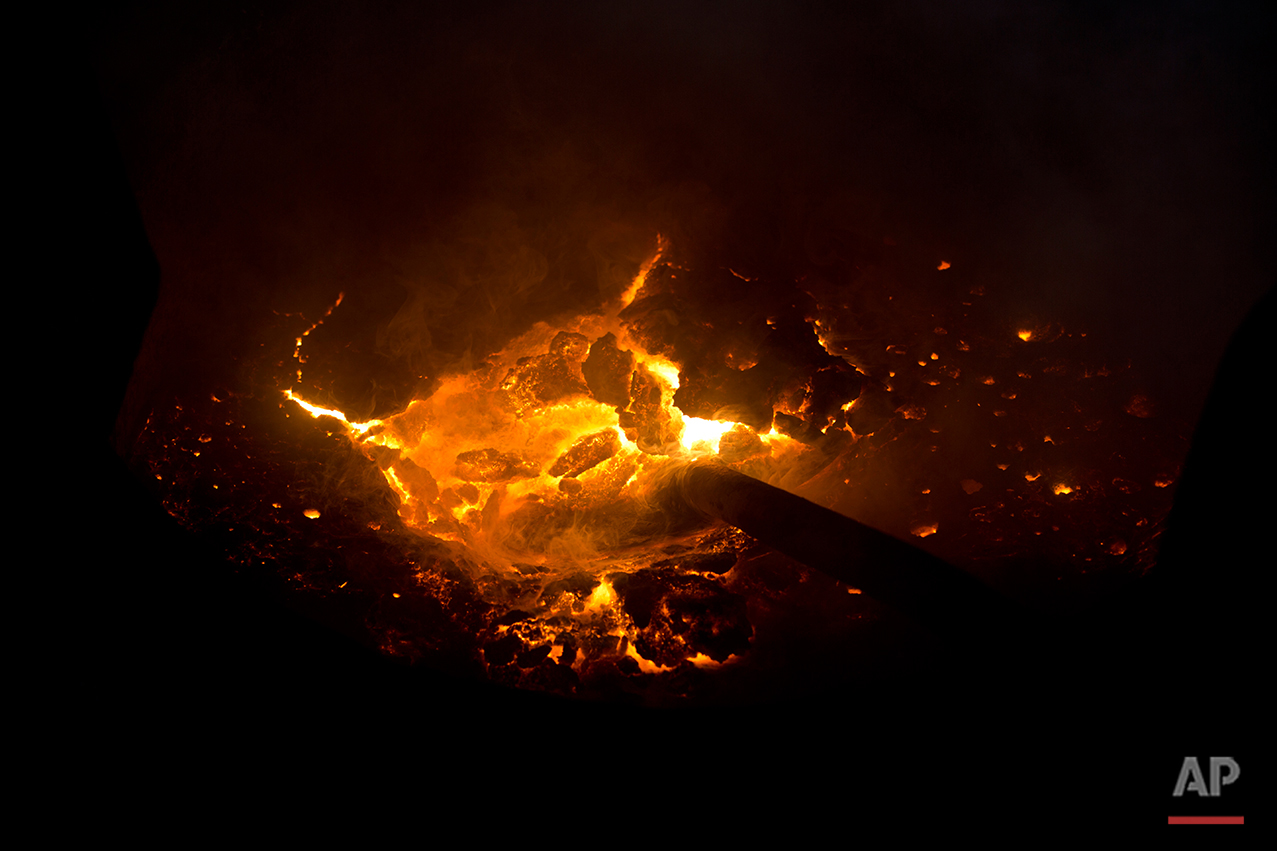
In this Aug. 3, 2016 photo, collected aluminum waste is liquified in a furnace to be cast into blocks on the outskirts of Dhaka, Bangladesh. A large swath of land not far from the Buriganga River is dotted with makeshift tents that are home to men and women who travel far from home to work 12 hours a day recycling cans, industrial ash and medicine blister packets into raw aluminum. The work is difficult and dangerous. The workers have no safety equipment or masks to protect themselves from the fumes and aluminum dust. (AP Photo/ A.M. Ahad)
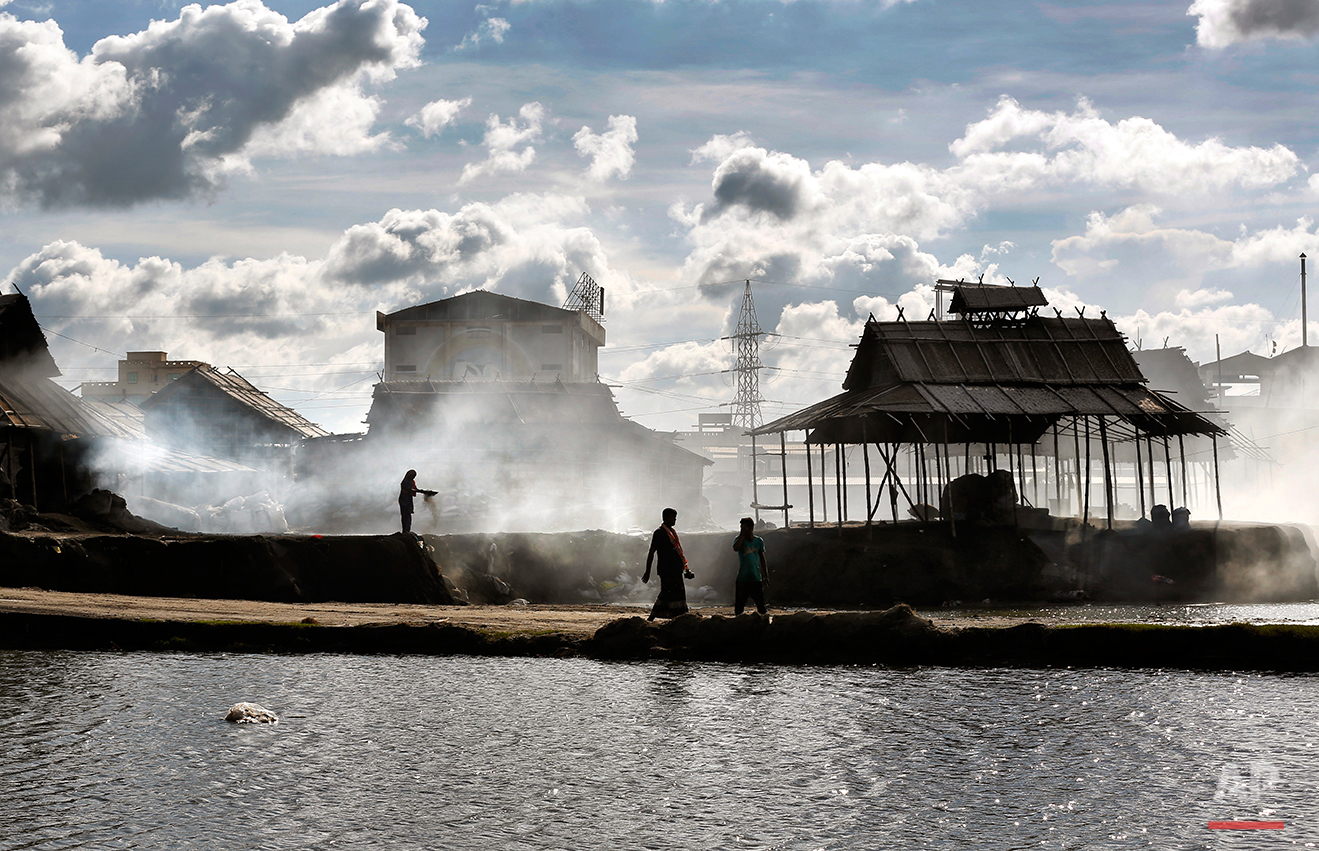
In this Aug. 3, 2016 photo, a Bangladeshi woman stands in rising smoke as she sorts aluminum pieces from industrial waste on the outskirts of Dhaka, Bangladesh. A large swath of land not far from the Buriganga River is dotted with makeshift tents that are home to men and women who travel far from home to work 12 hours a day recycling cans, industrial ash and medicine blister packets into raw aluminum. The work is difficult and dangerous. The workers have no safety equipment or masks to protect themselves from the fumes and aluminum dust. (AP Photo/ A.M. Ahad)

In this Aug. 3, 2016 photo, Mohammad Mosharrof sorts aluminum pieces from industrial waste on the outskirts of Dhaka, Bangladesh. A large swath of land not far from the Buriganga River is dotted with makeshift tents that are home to men and women who travel far from home to work 12 hours a day recycling cans, industrial ash and medicine blister packets into raw aluminum. The work is difficult and dangerous. The workers have no safety equipment or masks to protect themselves from the fumes and aluminum dust. (AP Photo/ A.M. Ahad)

In this Aug. 6, 2016 photo, workers rest under a tent they share near an aluminum recycling factory on the outskirts of Dhaka, Bangladesh. A large swath of land not far from the Buriganga River is dotted with makeshift tents that are home to men and women who travel far from home to work 12 hours a day recycling cans, industrial ash and medicine blister packets into raw aluminum. The work is difficult and dangerous. The workers have no safety equipment or masks to protect themselves from the fumes and aluminum dust. (AP Photo/ A.M. Ahad)
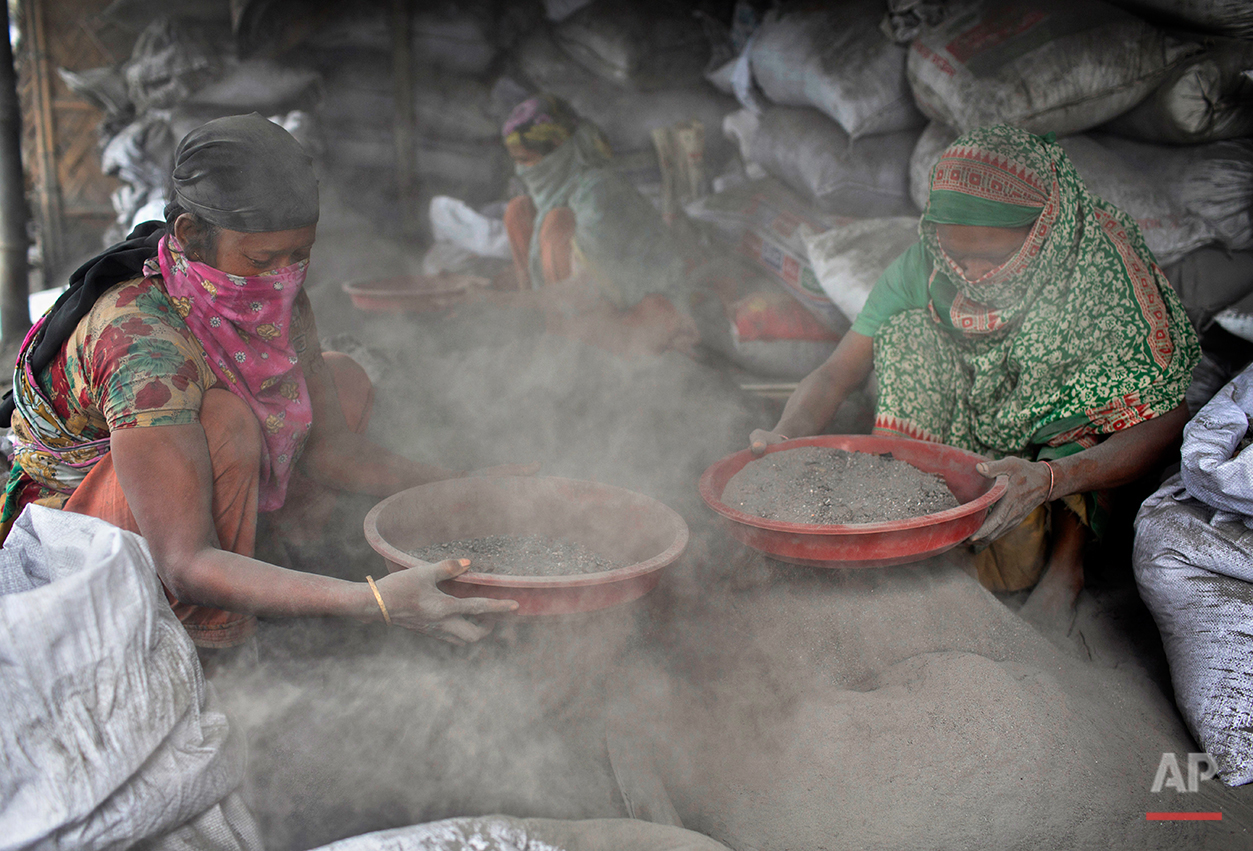
In this Aug. 6, 2016 photo, Bangladeshi women sort aluminum pieces from industrial waste on the outskirts of Dhaka, Bangladesh. A large swath of land not far from the Buriganga River is dotted with makeshift tents that are home to men and women who travel far from home to work 12 hours a day recycling cans, industrial ash and medicine blister packets into raw aluminum. The work is difficult and dangerous. The workers have no safety equipment or masks to protect themselves from the fumes and aluminum dust. (AP Photo/A.M. Ahad)

In this Aug. 3, 2016 photo, laborers work at an aluminum recycling factory on the outskirts of Dhaka, Bangladesh. A large swath of land not far from the Buriganga River is dotted with makeshift tents that are home to men and women who travel far from home to work 12 hours a day recycling cans, industrial ash and medicine blister packets into raw aluminum. The work is difficult and dangerous. The workers have no safety equipment or masks to protect themselves from the fumes and aluminum dust. (AP Photo/A.M. Ahad)

In this Aug. 3, 2016 photo, Monir Hossain melts recycled aluminum on the outskirts of Dhaka, Bangladesh. A large swath of land not far from the Buriganga River is dotted with makeshift tents that are home to men and women who travel far from home to work 12 hours a day recycling cans, industrial ash and medicine blister packets into raw aluminum. The work is difficult and dangerous. The workers have no safety equipment or masks to protect themselves from the fumes and aluminum dust. (AP Photo/A.M. Ahad)
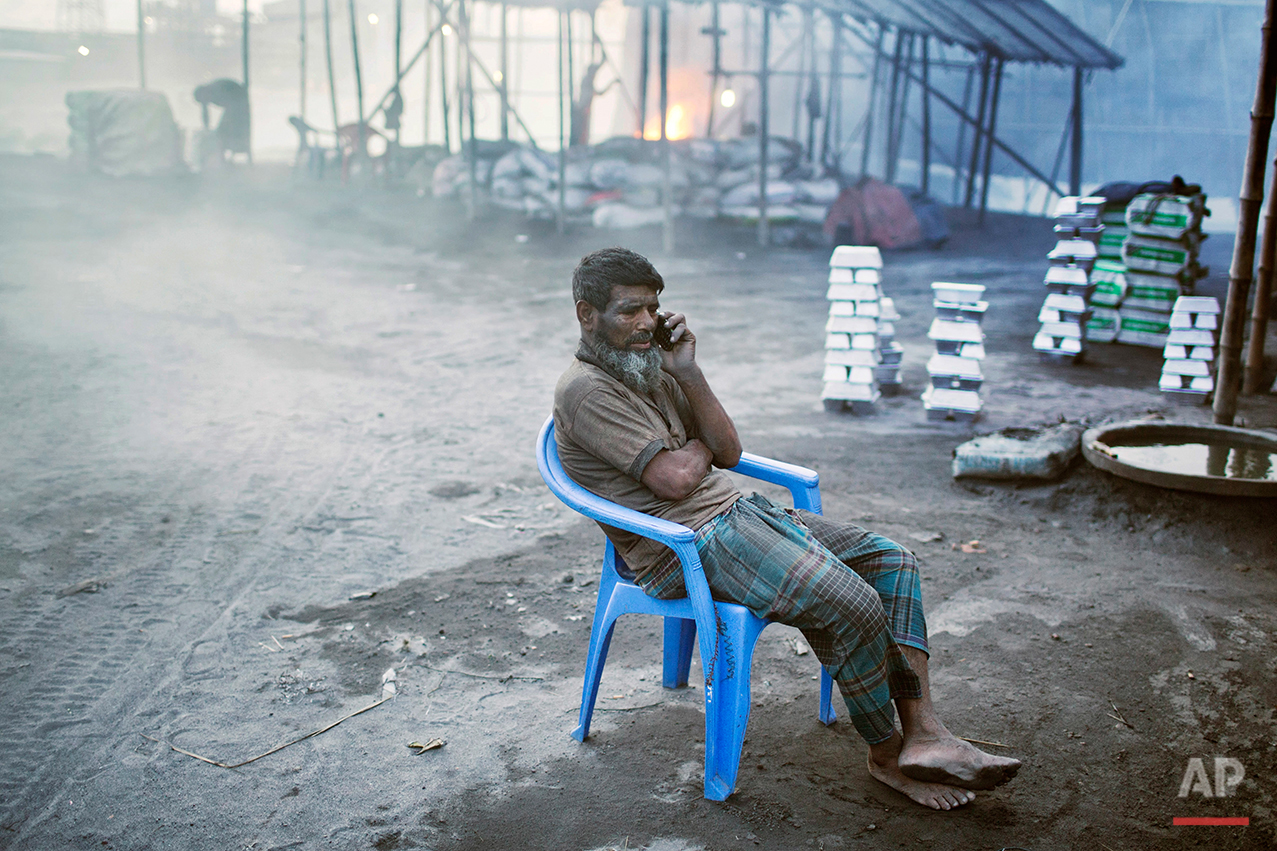
In this Aug. 6, 2016 photo, Mohammad Motaleb, an aluminum recycling factory worker, talks to his daughter during a break on the outskirts of Dhaka, Bangladesh. A large swath of land not far from the Buriganga River is dotted with makeshift tents that are home to men and women who travel far from home to work 12 hours a day recycling cans, industrial ash and medicine blister packets into raw aluminum. The work is difficult and dangerous. The workers have no safety equipment or masks to protect themselves from the fumes and aluminum dust. (AP Photo/ A.M. Ahad)
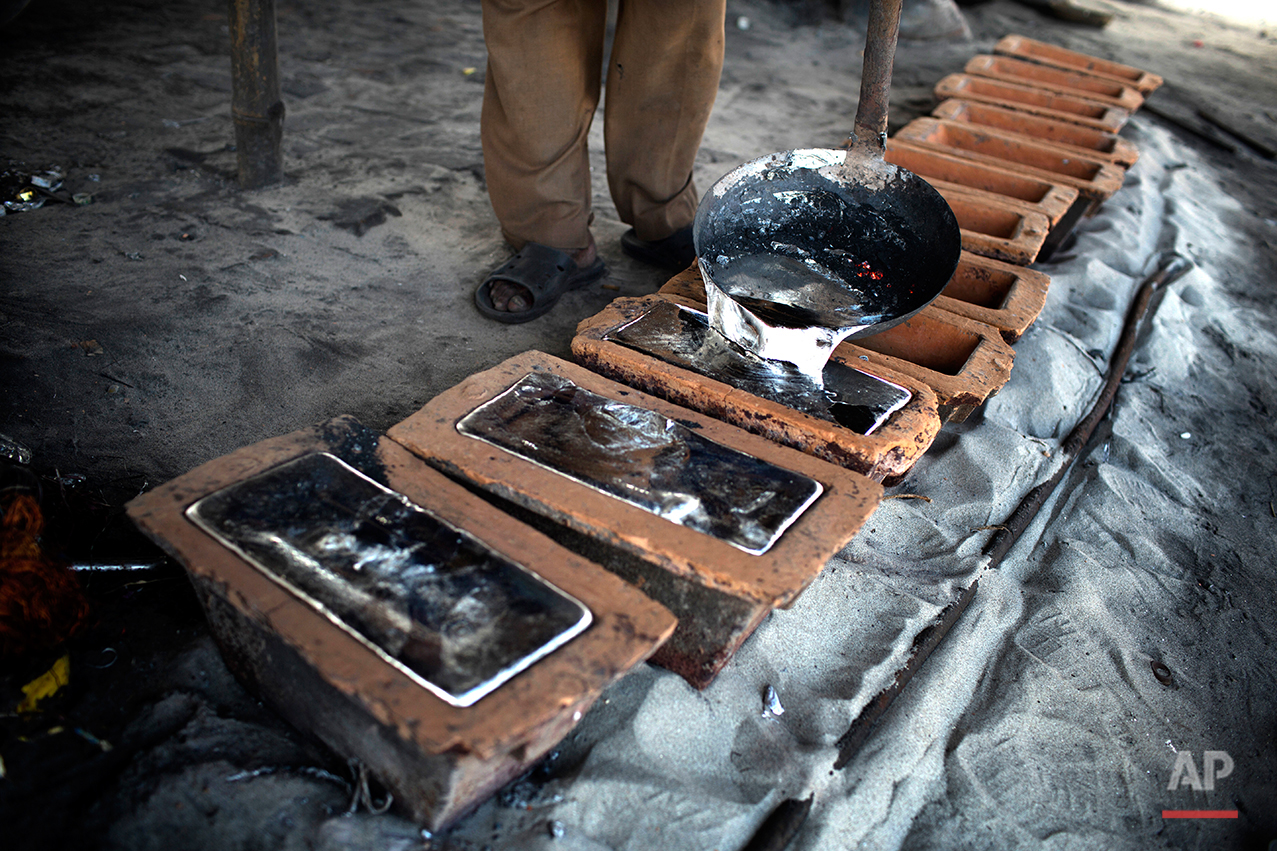
In this Aug. 3, 2016 photo, a worker pours liquid aluminum into casts at a recycling factory on the outskirts of Dhaka, Bangladesh. A large swath of land not far from the Buriganga River is dotted with makeshift tents that are home to men and women who travel far from home to work 12 hours a day recycling cans, industrial ash and medicine blister packets into raw aluminum. The work is difficult and dangerous. The workers have no safety equipment or masks to protect themselves from the fumes and aluminum dust. (AP Photo/A.M. Ahad)

In this Aug. 3, 2016 photo, recycled blocks of aluminum are loaded for transportation to a market from an aluminum recycling factory on the outskirts of Dhaka, Bangladesh. A large swath of land not far from the Buriganga River is dotted with makeshift tents that are home to men and women who travel far from home to work 12 hours a day recycling cans, industrial ash and medicine blister packets into raw aluminum. The work is difficult and dangerous. The workers have no safety equipment or masks to protect themselves from the fumes and aluminum dust. (AP Photo/A.M. Ahad)
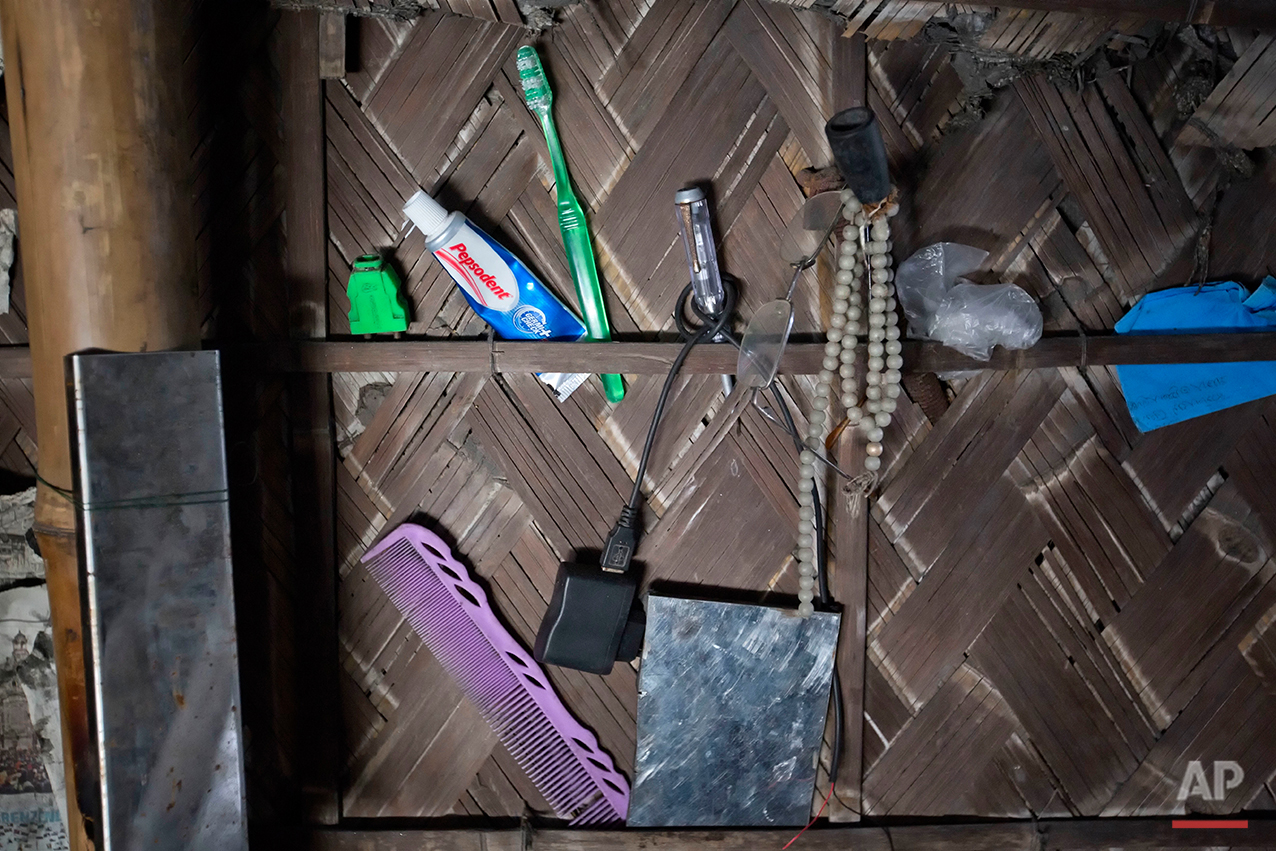
In this Aug. 3, 2016 photo, personal items are seen stuck in the makeshift wall of a shelter for migrant workers employed at an aluminum recycling factory on the outskirts of Dhaka, Bangladesh. A large swath of land not far from the Buriganga River is dotted with makeshift tents that are home to men and women who travel far from home to work 12 hours a day recycling cans, industrial ash and medicine blister packets into raw aluminum. The work is difficult and dangerous. The workers have no safety equipment or masks to protect themselves from the fumes and aluminum dust. (AP Photo/ A.M. Ahad)

In this Aug. 3, 2016 photo, Mohammad Jamal washes his face during a break at an aluminum recycling factory on the outskirts of Dhaka, Bangladesh. A large swath of land not far from the Buriganga River is dotted with makeshift tents that are home to men and women who travel far from home to work 12 hours a day recycling cans, industrial ash and medicine blister packets into raw aluminum. The work is difficult and dangerous. The workers have no safety equipment or masks to protect themselves from the fumes and aluminum dust. (AP Photo/A.M. Ahad)
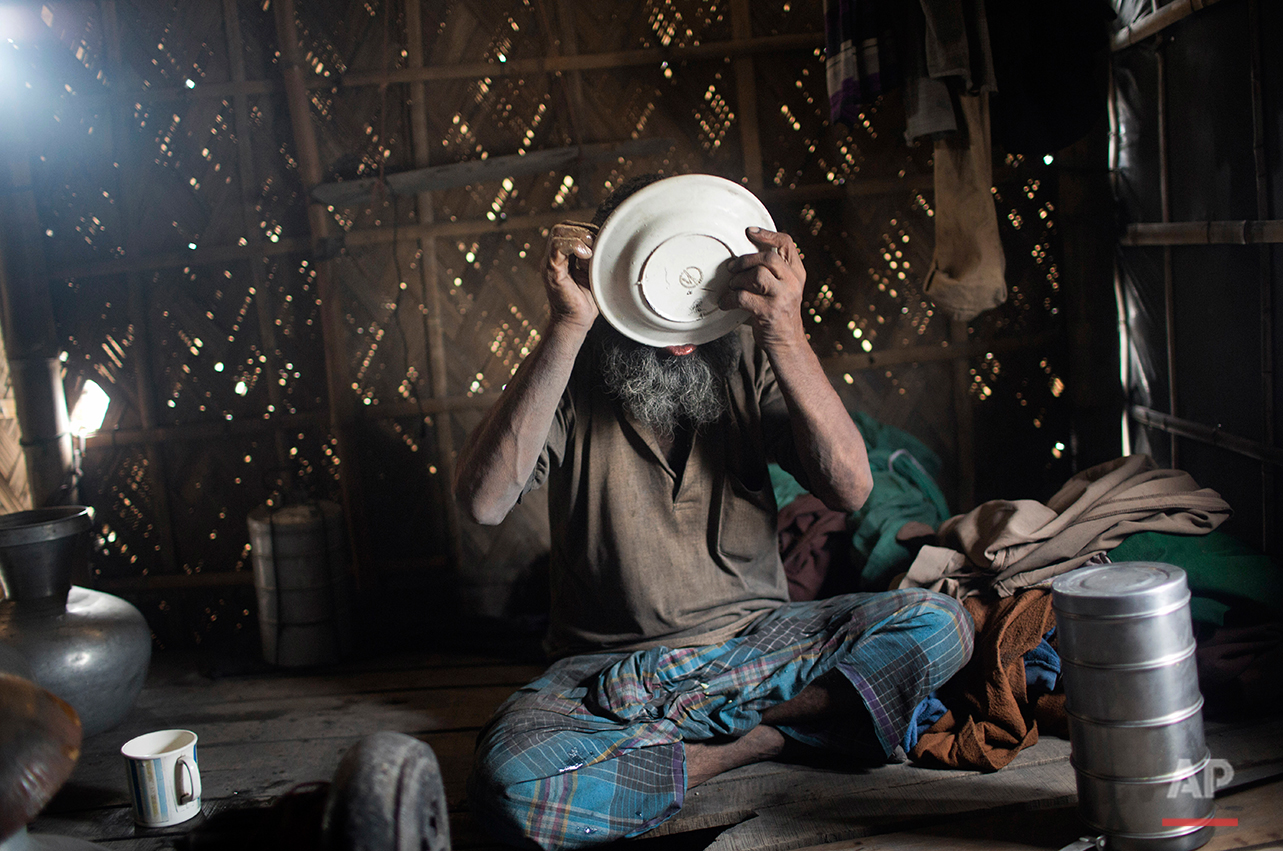
In this Aug. 6, 2016 photo, Mohammad Motaleb finishes a meal at his makeshift home near an aluminum recycling factory on the outskirts of Dhaka, Bangladesh. A large swath of land not far from the Buriganga River is dotted with makeshift tents that are home to men and women who travel far from home to work 12 hours a day recycling cans, industrial ash and medicine blister packets into raw aluminum. The work is difficult and dangerous. The workers have no safety equipment or masks to protect themselves from the fumes and aluminum dust. (AP Photo/ A.M. Ahad)

In this Aug. 6, 2016 photo, aluminum recycling worker Rubel Hossain plays soccer near a recycling factory on the outskirts of Dhaka, Bangladesh. A large swath of land not far from the Buriganga River is dotted with makeshift tents that are home to men and women who travel far from home to work 12 hours a day recycling cans, industrial ash and medicine blister packets into raw aluminum. The work is difficult and dangerous. The workers have no safety equipment or masks to protect themselves from the fumes and aluminum dust. (AP Photo/ A.M. Ahad)
See these photos on APImages.com
Text from the AP news story, Bangladeshis travel far from home for $10-a-day jobs, by A.M. Ahad.
Follow A.M. Ahad | Twitter | Instagram
Follow AP photographers on Twitter: http://twitter.com/AP/lists/ap-photographers
Spotlight is the blog of AP Images, the world’s largest collection of historical and contemporary photos. AP Images provides instant access to AP’s iconic photos and adds new content every minute of every day from every corner of the world, making it an essential source of photos and graphics for professional image buyers and commercial customers. Whether your needs are for editorial, commercial, or personal use, AP Images has the content and the expert sales team to fulfill your image requirements. Visit apimages.com to learn more.
Written content on this site is not created by the editorial department of AP, unless otherwise noted.
AP Images on Twitter | AP Images on Facebook | AP Images on Instagram



